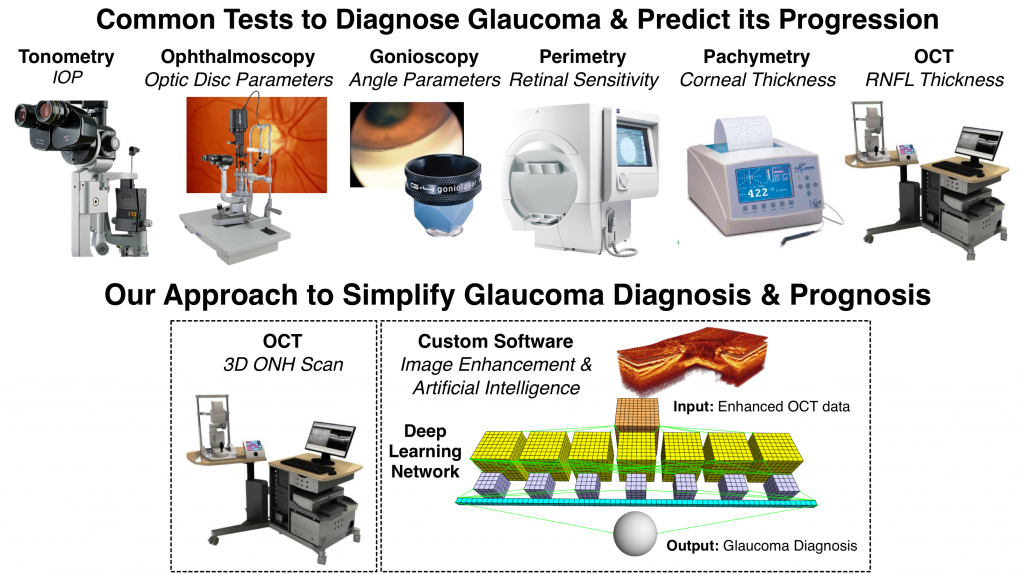Deep learning as aid in glaucoma diagnosis
Singapore project aims to bypass 'conventional methods'

Cheryl Guttman Krader
Published: Thursday, May 2, 2019
 Researchers at the National University of Singapore are aiming to apply deep learning to optical coherence tomography (OCT) images in order to modernise the diagnosis of glaucoma and obtain a better understanding of how the disease progresses over time.
At the annual meeting of the Association for Research in Ophthalmology and Vision in Vancouver, Canada, Alexandre Thiery, PhD, discussed the work being done by the Optical Coherence Tomography & Artificial Intelligence for Glaucomatous Optic Neuropathy (OCTAGON) team.
Dr Thiery, co-principal investigator of OCTAGON, explained that the group is focusing on the optic nerve head because it represents the main site of glaucoma damage.
“Glaucoma is a complex disease in which there are 3-dimensional structural changes, and our approach is to exploit deep-learning to provide 3-dimensional segmentation of the optic nerve head,” Dr Thiery said.
“The main advantage that we see for our approach is that we are able to extract parameters that are highly correlated with glaucoma but that are impossible to obtain with conventional methods.”
Researchers at the National University of Singapore are aiming to apply deep learning to optical coherence tomography (OCT) images in order to modernise the diagnosis of glaucoma and obtain a better understanding of how the disease progresses over time.
At the annual meeting of the Association for Research in Ophthalmology and Vision in Vancouver, Canada, Alexandre Thiery, PhD, discussed the work being done by the Optical Coherence Tomography & Artificial Intelligence for Glaucomatous Optic Neuropathy (OCTAGON) team.
Dr Thiery, co-principal investigator of OCTAGON, explained that the group is focusing on the optic nerve head because it represents the main site of glaucoma damage.
“Glaucoma is a complex disease in which there are 3-dimensional structural changes, and our approach is to exploit deep-learning to provide 3-dimensional segmentation of the optic nerve head,” Dr Thiery said.
“The main advantage that we see for our approach is that we are able to extract parameters that are highly correlated with glaucoma but that are impossible to obtain with conventional methods.”
Tags: ARVO 2019, deep learning, glaucoma, optical coherence tomography
Latest Articles
Making Female Leadership More than a Moment
A remarkable global confluence of women in key positions.
ESCRS Talks Technology at AAO
Europe adopts technological advances, US still waiting for lenses and lasers.
Sorting Out Simultaneous Vision IOLs
The ESCRS Eye Journal Club discuss a new landmark paper on IOL classification and the need for harmonisation of terminology for presbyopic IOLs.
Big Advantages to Small-Aperture IOLs
Small-aperture IOLs offer superior image quality with increased range of focus.
Prioritising Self-Care
Benefits of maintaining physical, emotional, and mental health extend beyond the personal sphere.
Valuing Clinical Trial Design
How inclusivity and diversity can enhance scientific accuracy in research.
Knowing Iris Repair: Using Iridodiathermy in Iris Surgery
Prepare for decentred pupils and uneven irides in multiple situations.
Neuroprotectant Treatment for MacTel Type 2
Intravitreal implant releasing ciliary neurotrophic factor found safe and effective in pivotal trials.